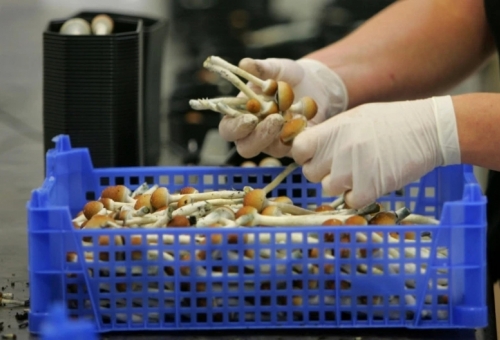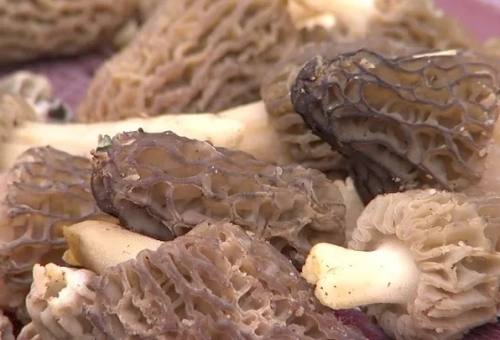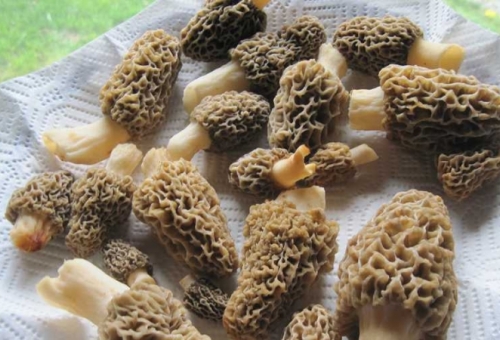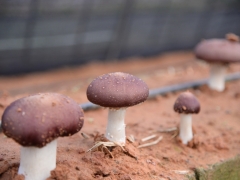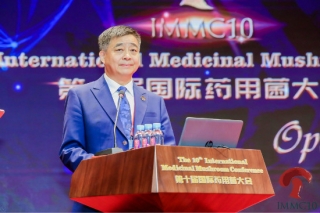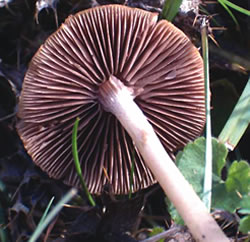
Drug researchers have turned to natural source for things to boost the efficacy of cancer treatment drugs by investigating the properties of mushroom and grapefruit that have been used for centuries in complementary medicine.
The idea that food items and other herbs such as mushroom can be used to treat cancer, one of the most devastating diseases in the world, may not be as farfetched as first thought. Many anti-cancer medicines and other generation of pharmaceutical-grade medicines to treat a wide variety of diseases as well as nutriceuticals (dietary supplements), are derived from natural products.
Researchers at the Boston University School of Medicine in the USA studied extracts of a type of mushroom called Phellinus linteus. They tested its effects on prostate cancer cells and found that when it was combined with doxorubicin, a well-known cancer chemotherapy drug, it increased the number of cancer cells killed by the drug.
Studies demonstrated that low doses of doxorubicin or mushroom extract alone could not kill prostate cancer cells. In the study, the researchers found that although higher doses of the drug did kill them, combining a low dose of doxorubicin with mushroom extract killed even more cancer cells, and did not affect healthy cells.
Their findings published by the British Journal of Cancer, indicate the possibility that a constituent of these mushrooms could one day be used in combination with existing chemotherapy to boost the effectiveness of treatment for some cancer patients. With extracts of these mushrooms, it might also mean lower doses of chemotherapy would be needed to achieve the same response.
Even though the researchers could not be sure of how the mushroom extract produced the effect, previously, they had been able to establish that this species of mushroom had anticancer properties.
They stated that with more information on how this mushroom kills cancers cells, it would be possible to make full, safe and effective use of these mushroom extracts in people.
Common mushroom varieties offer significant amounts of heart healthy fibres. They are also known to offer high-quality protein, vitamins, unsaturated fatty acids and fibre, but a precise study of carbohydrate breakdown has not yet previously been carried out.
The findings, published in the Journal of Agricultural and Food Chemistry, on six mushroom varieties tested - in raw and cooked forms and at various harvest times and maturity levels – found that it was rich in cholesterol-lowering chitin and the heart healthy beta-glutan. Conversely, a compound derived from mushroom may offer benefits to cancer sufferers. According to a study carried out in dogs and published in Evidence-based Complementary and Alternative Medicine, the compound polysaccharopeptide (PSP) found in the Coriolus versicolor mushroom may help to boost cancer survival.
The researchers found that cancer-suffering dogs given polysaccharopeptide (PSP) as part of their diet had the longest survival times ever reported for dogs with the disease.
The Coriolus versicolor mushroom, commonly known as the Yunzhi mushroom, has been used in traditional Chinese medicine for more than 2,000 years. Some past studies by researchers have suggested that the compound, PSP has immune-boosting properties, though as yet there is very weak evidence for any anti-cancer effect.
The researchers said this ‘promising findings’ offer hope that the compound may one day offer cancer patients — human and canine alike — a viable new ally in the battle against cancer.
Additionally, mushroom is a rich source of AHCC (Active Hexose Correlated Compound), an oligosaccharide that can strengthen the immune system and fight the onset of cancer. This oligosaccharide extracted from several mushroom species and has been recommended to the elderly by Japanese health professionals since 1987.
Nevertheless, consumption of one glass of grapefruit juice per day may equally allow cancer patients to take lower doses of certain drugs that are used to fight the disease, similar to mushroom.
Researchers, in a clinical trial published in Clinical Cancer Research declared that an eight-ounce glass of grapefruit juice every day could offer cancer patients the same benefits from an anti-cancer drug as they would get from more than three times as much of the drug by itself, by blocking the breakdown (metabolism) of the drug in by the body.
The clinical trial, which was carried out by researchers at the University of Chicago Medicine, USA, suggested that a combination of grapefruit juice with cancer drugs could help patients avoid side effects associated with high doses, in addition to reducing the cost of the medication.
The team of researchers stated that if the consumption of grapefruit juice can slow the body’s metabolism of sirolimus – a drug that is approved for transplant patients, it may also help those with cancer.
This first cancer study to see if grapefruit juice can be used in a controlled fashion to increase the availability and efficacy of sirolimus found that cancer patients who drank grapefruit juice increased sirolimus levels by 350 per cent.
The team enrolled 138 patients with incurable cancer and no known effective therapy. They were organised into three simultaneous phase-1 clinical trials of sirolimus. Patients received only sirolimus, sirolimus plus ketoconazole (a drug known to slow the metabolism of other drugs), or sirolimus plus grapefruit juice.
Initially patients taking only sirolimus were given very low doses – with the amounts gradually increasing as the study progressed. This was done to see how much of the drug was required to reach the targeted levels.
They found the optimal cancer-fighting dose for those taking sirolimus alone was about 90 mg per week. Though, noted that the drug caused ‘serious’ side effects – including nausea and diarrhoea – at doses above 45 mg.
Participants taking sirolimus plus ketoconazole needed only 16 mg per week to maintain the same level of drug in the blood, whilst those taking sirolimus plus grapefruit juice required between 25mg and 35mg of sirolimus per week.
Although, ketoconazole produced a slightly stronger drug-retention effect, grapefruit juice has the advantage that it is non-toxic, with no risk of overdose, the authors wrote in the journal.





